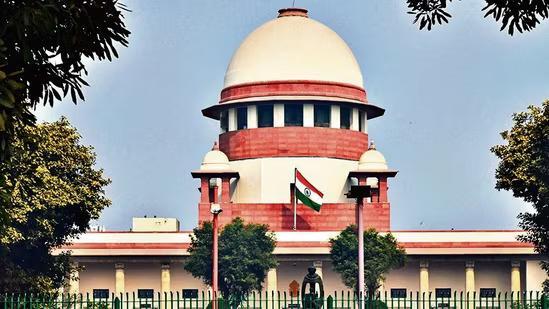
Title: No Action Against Owners of 10 & 15-yr-old Diesel & Petrol Vehicles for 4 Weeks: SC
The Supreme Court of India has passed a significant order in response to an application filed by the Delhi government, challenging the ban on over 10-year-old diesel and 15-year-old petrol vehicles as a pollution control measure in the capital. The court has stated that no “coercive” action will be taken against the owners of such vehicles for a period of four weeks.
This development comes as a relief to thousands of vehicle owners in Delhi who were facing the possibility of their vehicles being banned from plying on the roads. The Delhi government had petitioned the Supreme Court to stall the implementation of the ban, citing concerns about the impact on the city’s transportation system and economy.
The ban on old vehicles was introduced as a measure to reduce air pollution in Delhi, which has been grappling with severe air quality issues in recent years. The Delhi government had announced that vehicles older than 10 years would not be allowed to operate in the city, effective from January 1, 2020. However, the Supreme Court’s latest order has put a temporary hold on the implementation of the ban.
In its application, the Delhi government had argued that the ban was arbitrary and would cause significant hardship to the public, particularly to those who rely on their vehicles for daily commuting. The government also pointed out that there were no adequate public transportation facilities available in the city, and that the ban would lead to a significant increase in the number of people using public transport, which would put additional pressure on the existing infrastructure.
The Supreme Court’s order is seen as a victory for the Delhi government, which has been facing criticism from various quarters for its decision to ban old vehicles. The court’s decision to stay the implementation of the ban for four weeks has given the government some breathing space to reconsider its stance on the issue.
Industry experts believe that the ban would have had a significant impact on the automobile sector, with many vehicle owners opting to sell their old vehicles or modify them to comply with the new regulations. The ban would have also led to a significant increase in the number of people using public transport, which would have put additional pressure on the existing infrastructure.
The Supreme Court’s order is a significant development in the ongoing debate about air pollution in Delhi. The city has been struggling to cope with severe air quality issues, which have been linked to a range of health problems, including respiratory diseases and heart conditions. The Delhi government has been implementing a range of measures to reduce air pollution, including the ban on old vehicles.
However, critics of the ban argue that it is a draconian measure that would disproportionately affect low-income families who rely on their vehicles for daily commuting. They also argue that the government should focus on providing better public transportation facilities and incentives for people to switch to cleaner modes of transport, rather than imposing blanket bans on old vehicles.
In conclusion, the Supreme Court’s order to stay the implementation of the ban on old vehicles for four weeks is a significant development in the ongoing debate about air pollution in Delhi. While the ban was aimed at reducing air pollution, it has raised concerns about its impact on the public and the economy. The Delhi government will now have to reconsider its stance on the issue and explore alternative measures to reduce air pollution in the city.
Sources:






